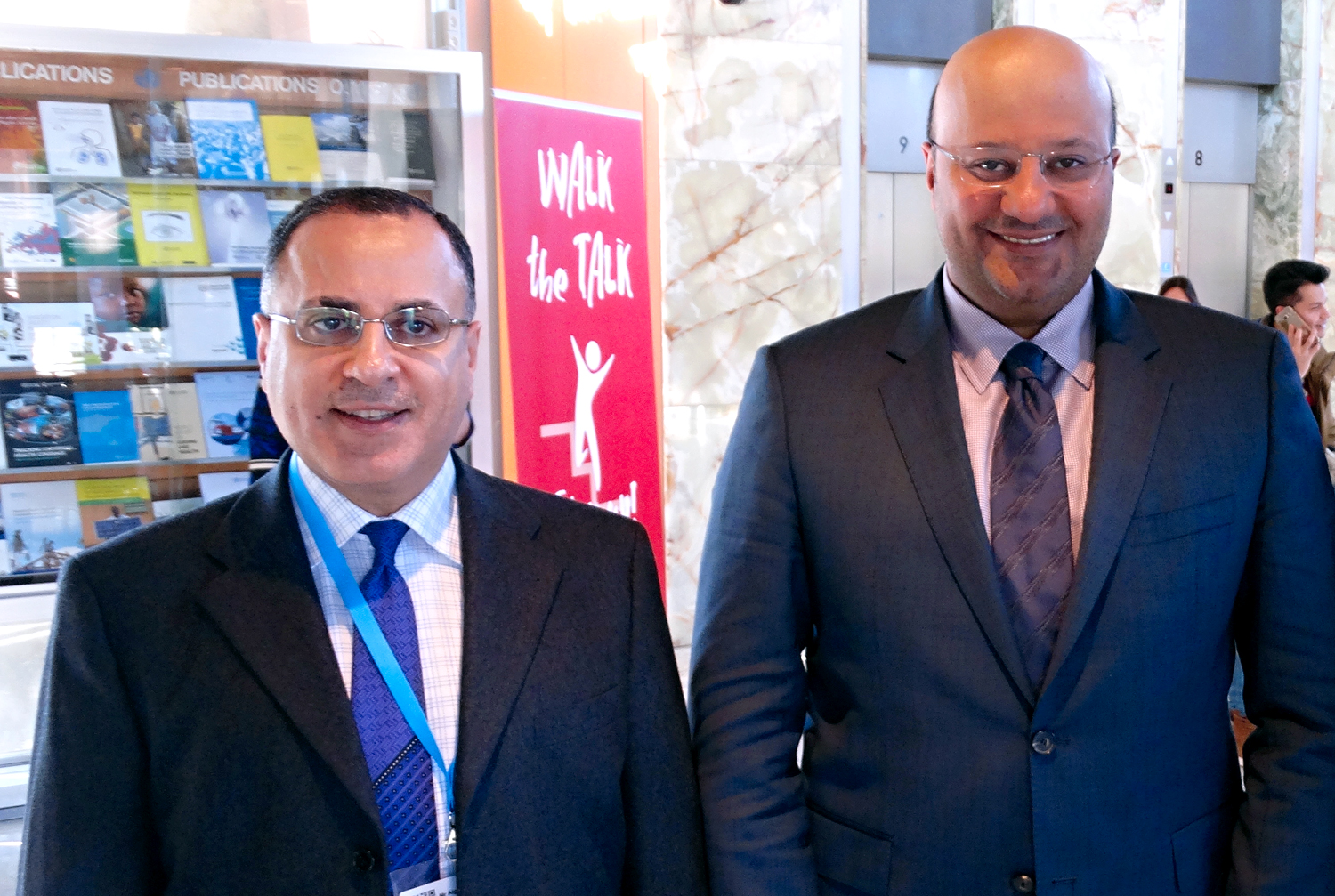LOC17:43
14:43 GMT
 Health Minister Ali Al-Obaidi with Kuwait's permanent delegate to the UN Ambassador Jamal Al-Ghunaim
Health Minister Ali Al-Obaidi with Kuwait's permanent delegate to the UN Ambassador Jamal Al-Ghunaim
GENEVA, Jan 25 (KUNA) -- Kuwaiti Health Minister Ali Al-Obaidi said on Monday Middle East countries are still required to shore up their response to emergency amid challenges posed by ongoing conflicts in several countries.
Addressing the meeting of the World Health Organization (WHO) Executive Board held in Geneva in his capacity as chairman of the 62nd session of the WHO Middle East committee, the minister said ongoing regional conflicts are affecting countries inside and outside the region.
In spite of progress in the region's response to emergency cases since 2014, its countries have yet to exert more efforts in this regard, he added.
The region's countries have created a regional integrated fund aiming to provide support during the critical stages of emergency cases amid a clear-cut trend towards reliance upon regional donors for bankrolling the fund, he added.
Despite growing challenges, they have also managed to make headway in the implementation of international health regulations and set up a relevant assessment committee, the minister pointed out.
"This step is another example for the ability of regional committees to contribute to WHO programs," he added.
The regional committees help WHO members focus on priorities and fields where they really need the WHO's backing whether at the regional level or that of the main headquarters, Al-Obaidi emphasized.
Over the last four years, the region's countries have been keen on providing all types of help to the reform of the emergency response mechanism, the minister added.
The current 138th session of the WHO Executive Board kicked off on Monday and lasts until January 30. (end)
ta.mt